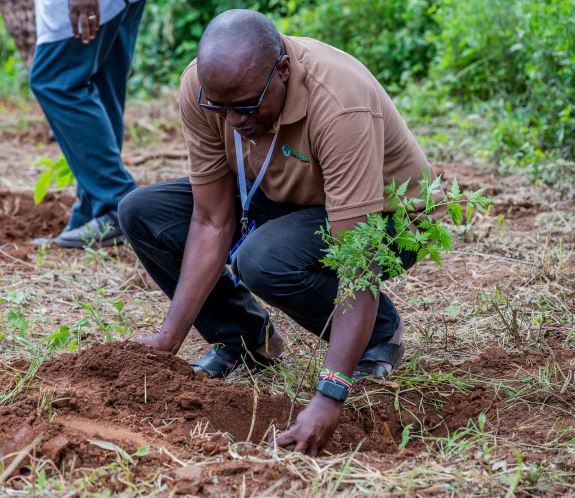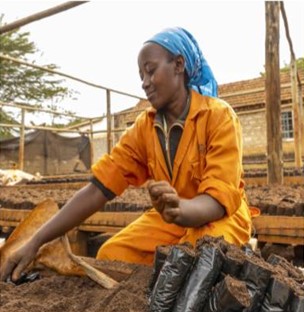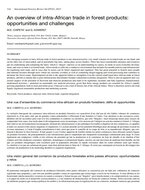Our Goals
400+
AFF Members
5+
AFF Staffs
700+
Africa Forest Enhancement
Delineation and goal of AFF’s work
The overall goal is to identify and promote opportunities for economic development and poverty eradication based on forest and tree products.
In this thematic area, AFF, with appropriate partners, will work on all relevant aspects of economic production of wood- and non-wood-based forest and tree products, cost-benefit analyses of such products, product development, value-adding and small-and medium scale forest industries, economic opportunities for communities and rural people, understanding value chains and consumer demands and preferences, and local, national, regional and international trade issues and opportunities related to forest/tree products.
Context
In Africa, unlike in most other world regions where wood- and forest-based products already are significant components in national and local economies, promotion of the role of forests and trees in enhancing the economic welfare of nations and of the livelihoods of rural populations is highly critical and hold a great potential. Today, the situation in the wood- and NWFP-based production sectors is characterized by: non-sustainable practices; poorly developed value addition, industries and product improvement facilities; and, defunct transport, trade and market infrastructures. Around 80% of wood removals are still used for charcoal/firewood, a fair share illegally felled and traded and most falling outside formal economic sectors. At the same time, the potential today for an economic and sustainable expansion of the forest and tree based products, not least for rural communities and farmers, is enormous. Demand for various forest products is rapidly increasing as a result of expanding purchasing power of growing urban middle classes, the potential for interregional and international trade is significant, and the transport infrastructure is being improved throughout much of Africa.
Examples of subjects, challenges and opportunities to be addressed
Sustainable supply of sufficient good quality forest products; e.g. strengthening participation of the private sector, local communities and other stakeholders in primary and secondary forest production; promoting Public-Private-Partnership and entrepreneurship development in forestry; better bioenergy – firewood, charcoal and liquid biofuels; trade and marketing in forest products and services; value addition and value chain analyses on forest products and services, including NTFPs.
Livelihood improvement opportunities; e.g. understanding socio-economic impacts of forest products, services and trade; identifying employment and income opportunities for all; livelihood support through forests and trees to other sectors (agriculture, livestock development and eco-tourism).
Contribution to national incomes, poverty, eradication and attainment of SDGs e.g. better valuation of forest benefits and their contribution at all levels

Publications
News
View More
Kenyan Youth Declare Bold Commitment to Forest Conservation and Green Economy Ahead of COP 30
Staff

Doris Mutta
Events
See AllSeventh session of the UN Environment Assembly (UNEA-7)
30th United Nations Climate Change Conference 2025 (UNFCCC COP30)
International Youth Day 2025
Knowledge Products
View MoreImpact Stories
View More

Forest conservation and management
The African Forest Forum (AFF) was set up in 2007 to generate knowledge and build capacity for the vital task of protecting forests, sustaining use and management of its resources as the continent was developing. Over the years its membership has grown tremendously, to include great minds in science, conservation, sustainable development, focused on creating livelihoods and maintaining ecosystems.

Championing gender equality to boost forest conservation in Cameroon
Women make up more than half of Cameroon’s 27 million citizens. About 70% of these women live in rural areas. Many of them harvest wild forest products to help sustain their families. However, community rules often work against them. In some areas they can’t own land or inherit it from their husbands. In others, women are prohibited from planting trees on degraded land.



